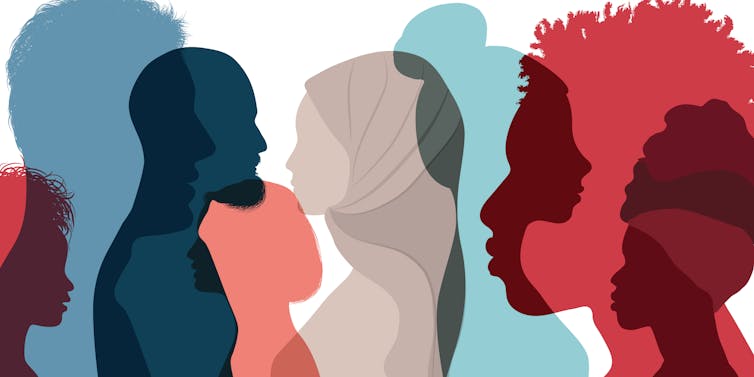[ad_1]
Individuals are inclined to assume having biases is a nasty factor. From the COVID-19 pandemic, to training and the office, tackling and mitigating bias may be very a lot a subject of dialog.
However, if we need to create a extra simply society we have to first perceive biases as pure merchandise of our surroundings.
We develop biases and views as reactions to experiences that put together us for evaluating data that we’ll encounter sooner or later.
We all have biases to a point, whether or not we care to confess this or not. Our biases stay innocuous till our assumptions influence our behaviours towards different individuals. By acknowledging our biases we are able to discover methods to mitigate their influence on our determination making.
Our perceptions of bias and our views essentially have an effect on how we work together with our environments. Take myself for instance, I’m a motivation and training researcher within the College of Schooling and College of Well being Sciences at Queen’s College. I are typically moved by proof that explains and explores why somebody did or ought to do one thing. That’s why the motives behind bias are fascinating to me.
Learn extra:
Measuring the implicit biases we could not even bear in mind we’ve
Motivation and biases
Our biases are consciously and unconsciously formed by what motivates us. The motives behind our actions form how we see the world and the whole lot in it. With this understanding it’s unattainable to be neutral on many points.
I’ll use a motivation principle known as Expectancy-Worth-Price (EVC) to clarify this. Our motivations for something may be sorted into three overarching teams of things: expectations (expectations of success), values and prices.
Expectations are a mix of self-concept (how I see myself) and self-efficacy (I imagine myself to be able to this job). For instance, does an individual imagine they’re neutral and able to being neutral on a specific challenge.
Values are the explanation why we do one thing (it could be enjoyable, fulfils my id, or I anticipate a reward for doing this). Somebody who aspires to be even-handed or identifies as being simply and honest would naturally be extra keen to contemplate the chance that their view could be skewed by a previous expertise or what they’ve perceived.

(Shutterstock)
Confronting biases additionally has perceived prices. Prices are the inherent and holistic worth of doing one thing (further effort, stress, discomfort). Contemplate how uncomfortable it could generally be to problem our assumptions and admit that we’d have been lower than honest, deliberately or unintentionally.
Once we act on biases we’re pushed by elements like these. Though they range from individual to individual, these three elements paint a typically relevant image.
Mitigating bias
The very best you possibly can hope for is to pay attention to how you’re biased and mitigate its influence. Our perspective on one thing so simple as a hockey hit or as complicated as ideas that spur dialogue of histories that might demand a shift in worldview, are influenced by our previous experiences.
By stigmatizing bias, we deal with it as one thing to evade, keep away from and conceal as an alternative of one thing we should focus on. This makes unmitigated biases — those that we persuade ourselves that we do not need — a supply of division and disgrace that impedes our progress.
By not addressing unmitigated biases, we’re setting individuals as much as keep away from troublesome conversations and to dwell as if some people’ experiences don’t exist or that views apart from their very own will not be legitimate. This lets biases fester into one thing that makes injustices extra doubtless.
The place this turns into a risk to justice is once we imagine we see issues extra clearly than others. As a substitute, we should always ask ourselves why we’re seeing issues the way in which we do and contemplate what might be informing our bias.

(Shutterstock)
I’ll go first. I like Canada, the nation that accepted my dad and mom’ households as refugees who had been looking for a greater life and keen to work exhausting for it. But when I permit my love for Canada to make me blind or numb to horrific historic injustices which have occurred on this nation, then I’m contributing to a establishment that actively harms others.
By acknowledging our biases, we make it attainable to do one thing about them, concentrate on them and management how they have an effect on us. Acknowledging bias permits us to make amends, make higher choices and finally change.
Understanding the motivations and broader implications of getting biases means we are able to higher comprise their unfavourable affect and advance justice in our society.
What we’d like is a bias literacy of types. Once we cease difficult our biases and people of others, essential conversations cease occurring. Biases are pure merchandise of our experiences, however the capability and willingness to reveal and problem our biases are acquired by means of placing within the exhausting work.
[ad_2]






